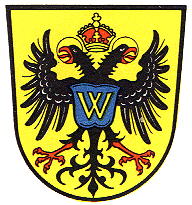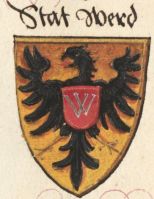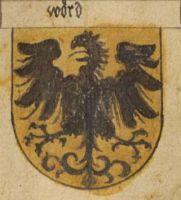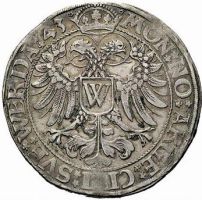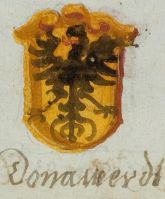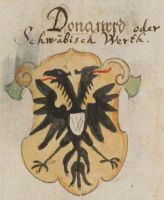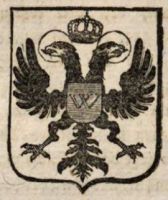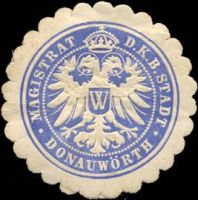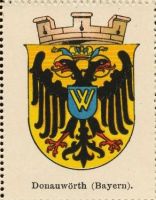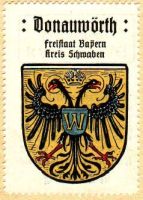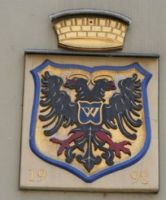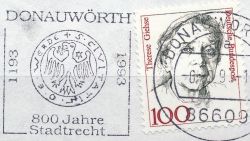Donauwörth: Difference between revisions
Knorrepoes (talk | contribs) m (Text replacement - "{{media}}" to " {{de1}} {{media1}}") |
Knorrepoes (talk | contribs) m (Text replacement - "{{de}}" to "") |
||
| Line 1: | Line 1: | ||
'''DONAUWÖRTH''' | '''DONAUWÖRTH''' | ||
Revision as of 15:13, 26 December 2022
DONAUWÖRTH
State : Bayern
District (Kreis) : Donau-Ries (until 1972 Donauwörth)
Additions : 1971 Auchsesheim, Nordheim, Zirgesheim; 1972 Riedlingen, Zusum-Rettingen (partly); 1973 Berg; 1978 Wörnitzstein; Schäfstall
| German | blazon wanted |
| English | blazon wanted |
Origin/meaning
Donauwörth was an imperial city in the early 13th century. The oldest seal, dating from around 1240, thus shows the imperial eagle flanked by a cross and a star. Until 1529 the seals showed the eagle flanked by two star-shaped flowers.
The present arms were granted by Emperor Charles V on October 21, 1530. The eagle is again the imperial eagle, the letter W the initial of Wörth. The arms have not changed since, except from 1818-1836, when the city was ordered to replace the eagle with the lion of Bayern.
The arms in a 16th century manuscript
The arms in the Wappen-Sammlung (1900)
The arms by Hupp in the Kaffee Hag albums +/- 1925
Literature: Stadler, 1964-1971, 8 volumes; Hupp, O: Kaffee Hag albums, 1920s
